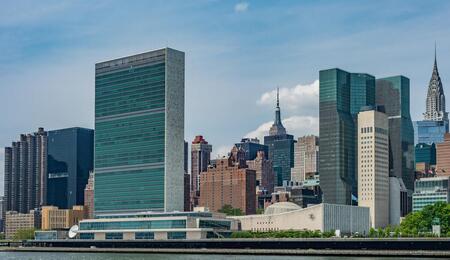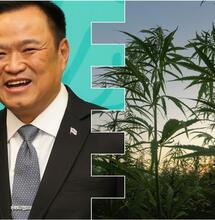United Nations Criticizes Cannabis Reform

The United Nations (UN) drug control body has issued a report where it appears to indirectly suggests that the United States is out of compliance with an international drug treaty established in 1961 because the federal government is passively allowing states to implement cannabis legalization. The body also makes a more general statement where it disapproves full adult-use legalization. Yes, you read that right.
The UN's International Narcotics Control Board (INCB) is no strange to criticizing countries that introduce laws that permit the legal use of marijuana for non-medicinal purposes. The body usually refers to provisions laid out in the 1961 Single Convention on Narcotic Drugs, under which the enactment of cannabis legalization remains prohibited.
In its annual report released on March 9, the drug control body further expressed its disapproval of member states that have allowed legalization. Overall, the language in the report appears to be more vocal against marijuana consumption.
The report appears to disapprove of the state-level cannabis reform ongoing in the U.S. in a special section.
"In States with a federal structure, a special issue may arise with respect to whether the federal Government may be held accountable if a federated entity implements legalization, which violates the conventions while the federal Government does not have the power to compel the federal entity to fulfill the treaty obligations," the report reads.
Without direct mention of the U.S., the report says: "The internal distribution of powers between the different levels of a State cannot be invoked as a justification for the failure to perform a treaty."
The INCB says that the international treaty dictates that member nations must "give effect to and carry out the provisions of this Convention within their own territories," regardless of the political system the member state has in place.
All of it seems to suggest that the UN scolds the U.S. federal government for failing to force states to repeal cannabis legalization and, by that, comply with the international treaty. What remains odd is that other countries like Canada and Uruguay have also federally legalized marijuana in the past. But there weren't that kind of wording in the annual report in those instances, only now as the process of state reform has sped up in the U.S.
The very fact that the United Nations has leaned on such an old treaty to express its discontent with cannabis legalization is also dubious.
In a more general statement, the report also says that full adult-use legalization is "in contradiction to the obligations set out in the drug control conventions."
The UN drug broad has also criticized the "growing availability and potency of cannabis products available on the illicit markets," remarking that this poses a health risk. It has also been said in the report that the expansion of legal cannabis has "contributed to the normalization and trivialization of cannabis use and, consequently, to reduced perceptions of harm associated with cannabis consumption."
Just as a reminder, in December 2020, the United Nations voted to remove Cannabis from the list of dangerous substances. The declassification again had to do with the 1961 Single Convention, where Cannabis was listed in a subset of drugs labeled as "highly addictive," "highly liable for abuse," "harmful," and "of extremely limited medical or therapeutical value."









